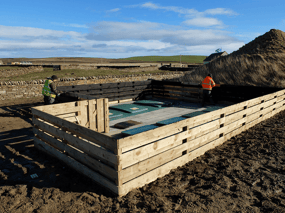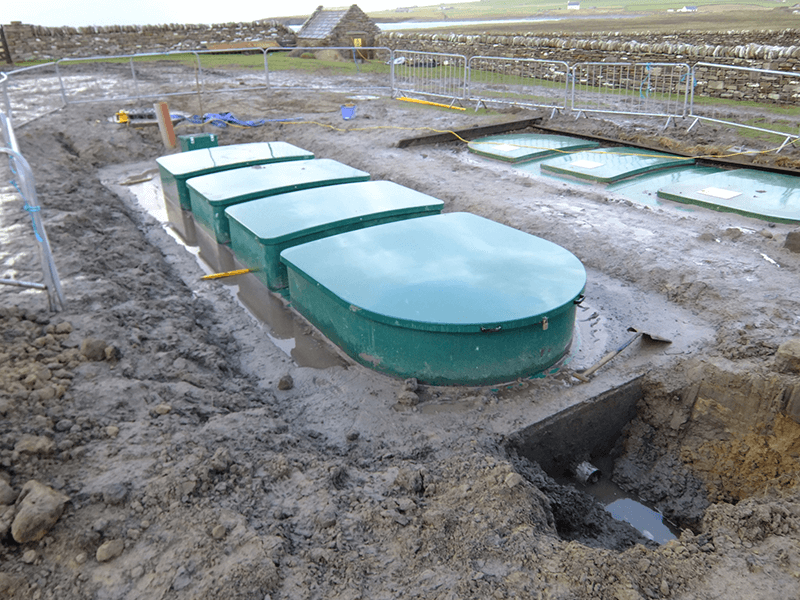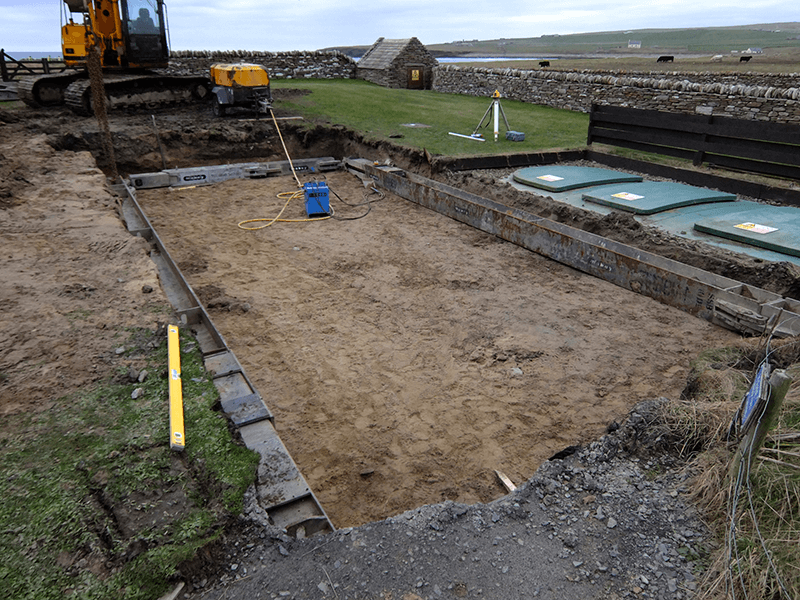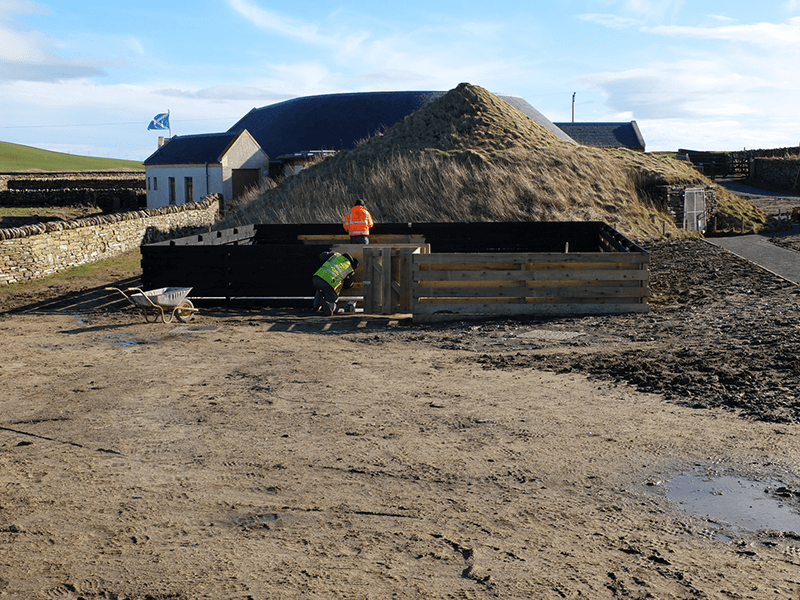We’re on LinkedIn!
Connect with WCS Environmental Engineering Safe Efficient Compliance

The mysterious neolithic settlement on a Scottish isle is visited by thousands of people every year. This cluster of 5,000-year-old houses, half-buried on the edge of the ocean.
It is been famously claimed by historians to home the oldest indoor toilets in the world. When it became clear that the visitor centre for the remote historic site needed to upgrade its own sewage treatment plant it was essential to make sure the work was carried out to the highest possible standards.
The new system had to be able to cope with a huge influx of visitors a day in the height of summer, but to be as low impact, discreet and environmentally friendly as possible. Frequent power cuts, a remote location and wildly fluctuating flows also meant the new system had to be stable and easy to maintain.
Breck Environmental Consultants who specified an off-the-shelf compact sewage system. As well as being easy to install, the HiPAF (SAF biozone) midi system treats wastewater to a high environmental standard.
Installed below ground and manufactured in glass-reinforced plastic (GRP), the compact sewage system is just 9.25m in length and was chosen to create the least possible disruption to the wild and empty landscape.
The HiPAF midi compact sewage system contains primary treatment, biological treatment (biozone) and final settlement modules. It treats wastewater without chemicals to a high environmental standard.
A lack of moving and mechanical parts inside the system makes it very easy to maintain. Regular visits from an engineer is enough to make sure everything is working as it should.
The unique design of the primary tank of the HiPAF midi means it can cope well with variable flows – which is essential for the site. During the summer season the influx of visitors from cruise ships and coach parties can bring in as many as 2,000 people in a day – while in the wild winter weather the neolithic village can be without a single visitor.
A huge increase in the numbers of cruise ship visitors was one of the main reasons the original HiPAF system needed to be replaced. The previous plant was installed in 1997 when the Visitor Centre was first built.
Over the last sixteen years visitors centre found the previous system gave very few problems – which is why its engineers were happy to install a new system to replace it.
Frequent, and often lengthy, power cuts in winter are a fact of life on the isle, which relies on overhead power cables, but experiences 100mph winds. Breck Environmental Consultants, who advised the visitors centre on the upgrade to the sewage system, created a custom-made installation to cope with the problems created by the remote location and extreme weather.
The existing treatment plant was repurposed to create an overflow tank by removing the internal equipment. This tank can now be used for storage should effluent pass a certain level in the event of prolonged power failure.
Once power is restored, the contents of the overflow tank can be pumped back through the new treatment plant. A back-up 13kVA generator will enable the blower motors to continue during extended periods of power failures.
The compact system was transported via road and ferry to the Scottish isle.

Installation was carried out in running sand with a high water table, which meant an interlocking steel trench cofferdam was required, with almost constant pumping. Despite the technical challenges, the compact nature of the plant meant it could be transported and installed with minimum disruption to the daily running of the visitor centre.

Everything was done to ensure the upgraded system was fitted as discreetly as possible and made the least possible impact on the landscape. The control panels and blowers were housed within a kiosk constructed from local stone. The plant itself was entirely below ground and sectioned off by a wooden fence.
Technical Manager, Dominic Hamblin said ‘This project was particularly interesting to work on due to the site being of such historic value where compliance and keeping in with the surrounding environment was essential.’
Robust, compact and easy-to-maintain, the HiPAF midi is a great fit for visitors centre. Whether coping with the impact of thousands of visitors during the summer or surviving the vagaries of the winter, the new compact treatment plant will serve visitors to this neolithic treasure for years to come.

With nutrient neutrality requirements being enforced at off-mains properties in areas of England, homeowners need to ...
Why managing variable loads matters If you have an off mains wastewater treatment system operating at a hospitality, ...
Trade effluents are liquid waste streams discharged into public sewers from businesses and industrial processes. Their ...
Connect with WCS Environmental Engineering Safe Efficient Compliance
WCS Group is a trading name for WCS Environmental Ltd, registered in England and Wales (Number 02184649) at 20 Grosvenor Place, London, SW1X 7HN. Head Office – 17 Wheatstone Court, Waterwells Business Park, Gloucester, GL2 2AQ. WCS Group is a Marlowe Critical Services Company owned by Marlowe plc. 2025© WCS Environmental Ltd.